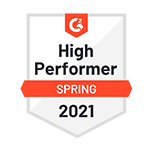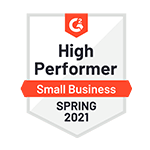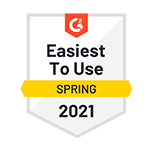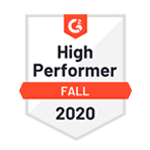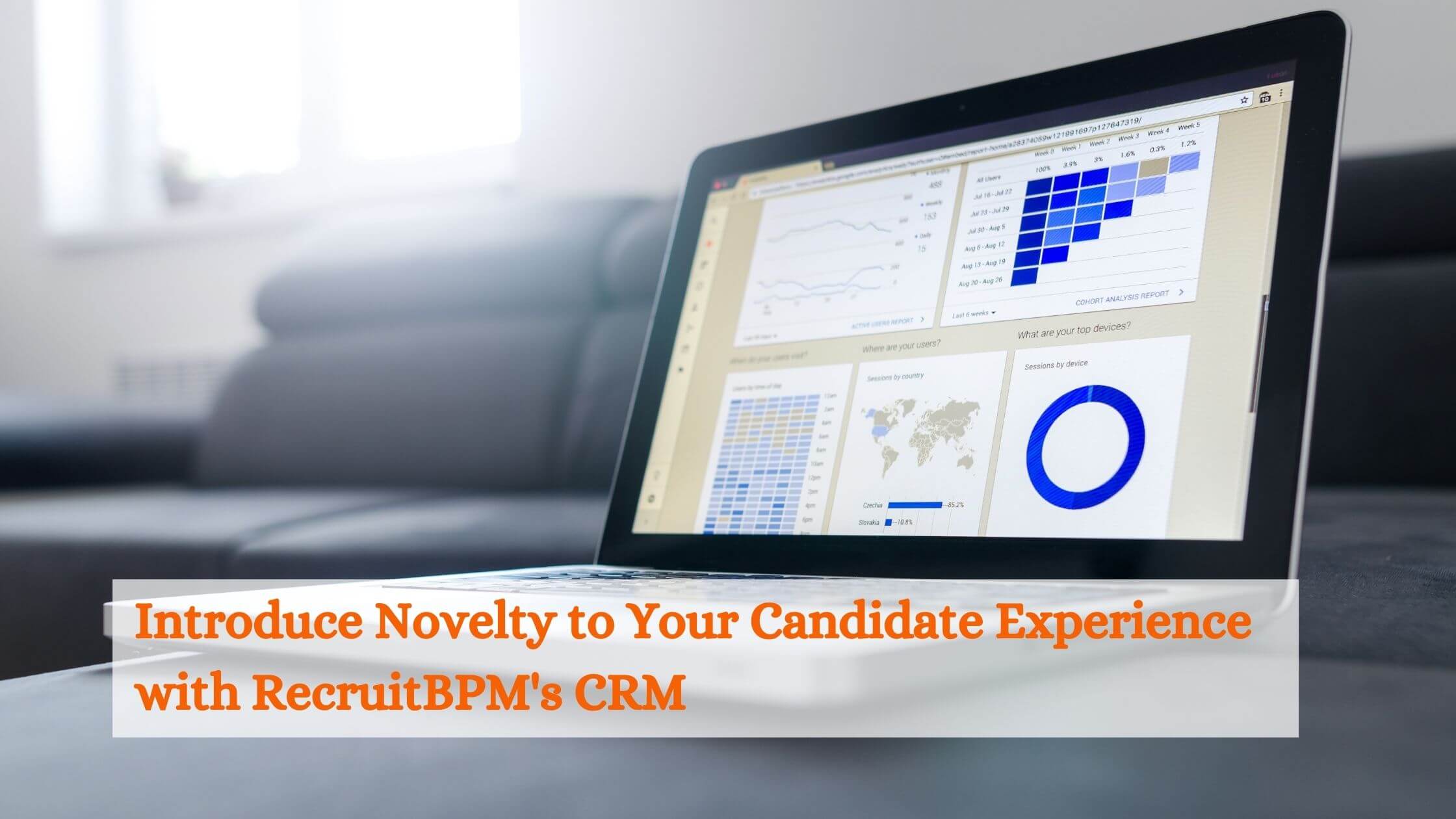
The term recruitment CRM implies a software that companies use to engage with potential candidates for the job. Undoubtedly enough, there is cut-throat competition in the labor market. Contemporary employers are very smart and careful when selecting new employees for their companies. Likewise, the applicants also have their choice and freedom when they are on the hunt for a job, and therefore they can pick their employers.
Since it’s crucially important for every business to make itself distinguished from others in the market, they must achieve this goal by offering excellent candidate experience and keeping them engaged throughout the recruiting process. The most important concern for the companies is the availability of best solutions in the market that can help them offer outstanding candidate experience along with keeping them engaged during the whole recruiting process.
The most basic answer to this problem is ‘Recruitment CRM’. This recruiting software enables the businesses to deal with their candidates, and consequently, helps them to attract the best talent and hire for the positions more cost-effectively and quickly. In this article you will get to know about recruitment CRM and why it’s important for businesses. Furthermore, you will also have the essential knowledge to look for the signs when your company needs a CRM to modernize your recruiting efforts.
What is Recruitment CRM?
Recruitment CRM is a freeware developed to help businesses in keeping the applicants engaged once they apply for the available vacancies. The most essential purpose of a recruiting CRM is to help the companies in establishing quick and meaningful communication, so that, they can develop and maintain strong relationships with the applicants. Generally, CRM is the abbreviation of Client Relationship Management, however, in the field of recruiting, it means Candidate Relationship Management.
How does CRM help in Recruiting?
A recruitment CRM is a software built specifically for recruiters to help them in searching and recruiting the best candidates. This recruiting solution enables HR professionals to fetch an applicant’s information from the talent pipeline, and review their qualifications, skills, and previous experiences, etc. The information saved in the talent database can be used by HR professionals to develop effective relationships with the applicants to reach them personally.
CRM software allows you to:
- Develop a candidate network through a single searchable talent database.
- Promote and organize the applicants – you can easily supervise an applicant throughout the hiring stages i.e., from submission of the application to their first day at the job.
- Deal with hundreds of thousands of applications, specifically when you are recruiting on a big level.
- Get the recruiting activities easily done for example candidate screening according to their qualifications and skills, interview scheduling, and background screening.
- Keep a track of effective recruiting strategies and metrics.
Why do Recruiters Need a CRM?
In an attempt to offer your candidates an excellent experience during the whole hiring process, a recruiting CRM is an imperative choice. As a recruiter, it makes your work-life a lot easier. Following are a few benefits to mention you can get through a candidate relationship management software:
-
Develop Comprehensive Candidate Profiles:
Using a CRM for your recruiting tasks, you have the extra help to retrieve all candidate-related data, including their skillsets, social media profiles, and former employers, etc. Thus, in this way you can also save a lot of time that you usually have to spend in going through databases to retrieve the candidate information.
-
Keep Applicants Interested:
With the help of this recruiting software, you can make the candidates maintain their interest and excitement regarding their chances of working with your company. You can communicate with them without any glitches during the entire recruiting process.
-
Speed-up Developing Talent Pools:
Once you have a centralized place to save the candidate-related data, you can easily develop the talent pools. This enables you to quickly identify the most suitable candidate against the open positions.
-
Stimulate Personalized and Quick Communication:
The Candidate relationship management system enables you to dispatch personalized and quick updates regarding the developments of the recruiting process. According to a research, 82% of the applicants assume to get updates from employers throughout the whole recruiting process.
-
Modernize the Application Process:
In the present days, the applicants simply want to save their time. They prefer a quick applying process rather than stuck on an application form for hours. Consequently, an efficient recruitment CRM modernizes the application procedure. Now, the candidates can apply even through social media networks.
-
Build Relationships with Potential Hires:
Most probably you will not recruit each qualified applicant applying for an open position. However, you may consider developing relationships with those applicants for future recruits. A CRM helps you to build a network of potential applicants for prospective opportunities.
-
Time-Saving:
With a recruitment CRM you can give up on worrying about the tiresome and time-draining manual recruiting procedures. This recruiting software streamlines and introduces automation to routine recruiting activities while saving your money and time.
-
Keep a Check on your Hiring Efforts:
A recruiting CRM is useful for the staffing agencies to let them identify the ups and downs in their recruiting strategies and processes. With defined recruiting metrics, they can efficiently organize their total time to hire and source top-quality candidates along with refining their recurring strategies.
When is the Time to Use a CRM?
You may have a strong conviction that a standard recruitment applicant tracking system or spreadsheets work just fine for your staffing and recruiting agency, yet there are other better options available in the market. Now is the time to employ a recruitment CRM and introduce a new level to your recruiting efforts. Following are a few points of reference to let you know if you need a hiring CRM.
-
Actively Sourcing Applicants:
An applicant tracking system (ATS) is responsive and is used only when the applicants apply for an open position. When you are enthusiastically sourcing the applicants, an ATS has its limitations here. Hence, you need an HR CRM to get hold of and organize the candidates.
-
Using Spreadsheets to Organize the Applicants:
Although HR professionals and recruiters have various means to handle the candidate-related information. These means include but are not limited to outlook tasks, and sticky notes, yet the most used ones are spreadsheets. No doubt spreadsheets are very handy when it comes to finance and accounting. However, it is the worst option for handling recruiting activities. In spreadsheets, you have to add the data manually which is time consuming. Innovative tools have enabled to automate most of manual functions. Thus, deploying an ATS makes life easier for the recruiters.
-
Hiring for Hard-to-fill Positions:
Even though some positions have several candidates, many other jobs don’t. When dealing with hard-to-fill positions, you must develop a database of qualifying candidates and maintain strong relationships with them. CRM for recruiting agencies is the right solution to develop a strong talent pool.
-
Spending the Time Mostly on Processes and Workflow:
If most of your time is spent on the ATS processes and workflows, you need a better solution. Save your time and money by introducing automation for your processes and workflows that is offered by a modern hiring CRM.
-
Having Duplicate Profiles in your ATS:
Many factors can cause you to have multiple profiles of the same person in your ATS database. The main reason for this situation is the visibility in the applicant tracking system’s design when organizing the data from an application approach. Here are a few circumstances that can cause profile duplication for ATS but not CRM:
- Sourcing an applicant already existing in the database
- A former applicant re-applying
- An applicant going for two individual positions simultaneously
- A recruiter assigning a candidate already existing in the database
-
When Your ATS Turns into a Candidate Boneyard:
There are high chances for you to have hundreds of thousands of applicants’ information saved in your ATS database. It comes with a downside that the candidate-related data could be draining resources as it becomes outdated eventually. Consequently, such a database becomes useless for the recruiters. With an HR CRM, you can turn this candidate boneyard into a treasure-trove from which you can find the top talent for future opportunities.
What it’s all about?
Since the talent market is turning out to be more and more of a cut-throat race. A huge number of employers and HR professionals are focusing their attention on improved candidate experience. It doesn’t matter if your recruiting agency is hiring for an individual applicant or dozens of them, you most certainly need a CRM system. Being a recruiter, you ought to organize and keep every applicant interested. Hence, to improve your recruiting efforts with your candidates, recruitment CRM is the best choice.
Moreover, RecruitBPM offers you a cost-effective CRM solution to help with your recruiting endeavors. To know more about RecruitBPM’s recruitment CRM, start your 7-days free trial now or schedule a demo with us.














